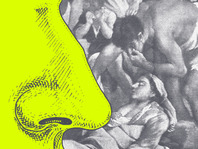1. Funding Phase B03
The Use of Senses. Vigilance in Early Modern Cities
 Principal Investigator
Principal Investigator
Prof. Dr. Arndt Brendecke
Researcher
Dr. Brendan Röder; PD Dr. Benjamin Steiner
Project Description
Even though in cities sensory perceptions take place perpetually and affect all social classes, they often remain functionally diffuse and politically dormant.
This project will examine cases in which this status quo is changed and in which sensory perceptions are actively integrated into municipal political tasks. Augsburg, Florence and Seville were chosen as a wealth of sources relating to these towns exists, and, in merchant towns particularly, the reporting of certain perceptions meant that civil loyalties were put to the test. Reporting a suspected case of the plague often meant weighing up the effect of a report on both private commercial interests and public health.
The project deals with the perception of acute dangers (fire, the plague), as well as latent ones (air, water and soil quality, social monitoring), incorporating all the senses and analyzing their function and how they are used in combination with one another. Sense of smell was important when it came to detecting damp or rot, but also for the detection of acute dangers, such as fire. Taste, smell and touch were used to check the quality of different substances and goods, while hearing was the chief sense used at night. The subproject aims to determine more precisely how the often subtle, yet significant politicization of the senses was accomplished and which distinctive effects this politicization had.

